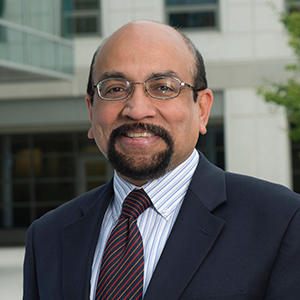If anyone knows organization change management, it’s Gregory Washington. Washington took the reins of George Mason University as the eighth president of the 39,000-student public university in July 2020, four months after the campuses were closed amid the pandemic lockdown and two months after the civil unrest following the death of George Floyd. The challenges confronting Washington during his first days in office were, to say the least, unique and unprecedented.
But—and not to summon the proverbial jinx—Mason, under Washington’s guidance, has seemingly overcome those unforeseen obstacles, as well as many others, as it became a national model for developing “safe-return-to-campus” protocols. The school also summoned the energy and enthusiasm of its academic units to contribute to the global conversations about racial equality and social justice; several high-profile committees are tackling initiatives to create positive cultural change.
Washington will be the keynote speaker in a first-ever webinar on organizational change hosted by the Organization Development and Knowledge Management (ODKM) Network of the Schar School of Policy and Government. The event, moderated by Organization Development and Knowledge Management program founding director Tojo Thatchenkery, takes place on Zoom on Thursday, February 25, from 6:45 p.m. to 8:15 p.m. ET. Dean of the Schar School Mark J. Rozell will host.
Washington, an engineer by training, will speak about his experience in managing organizational change throughout his career, up to his appointment at Mason; a question-and-answer period, including those from participating viewers, will follow.
About Organization Development and Knowledge Management
The cohort-based Organization Development and Knowledge Management program is designed to meet the needs of contemporary society and of organizations undergoing rapid changes and shifting from hierarchical structures to more group-based learning environments. While focusing on the human and social aspects of organizing, the program also emphasizes the use of collaborative groupware technologies to support interactive learning, knowledge sharing, and knowledge creation.


